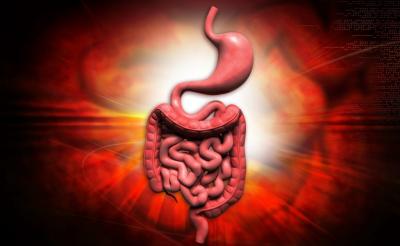

by Alexa Erickson, Collective Evolution
According to a new study published in the journal Cell, a new fasting diet might be able to reboot the body.
The research explains that the diet triggers the pancreas to regenerate itself, which works to control blood sugar levels and reverse symptoms of diabetes.
The scientists put mice into an artificial fasting mode for four days a week over a period of several months to regenerate beta cells in the pancreas, which stores and releases insulin, and saw that working cells took the place of damaged ones. The team even experimented on pancreatic cell cultures from human donors affected by type I diabetes, and found that the diet generated additional insulin, as well as the Ngn3 protein needed to ensure the pancreas functions correctly.
Having been tested only on mice and on human cells in lab conditions, there is still a ways to go to prove its efficacy in the real world. Researchers also advise against trying it at home as a means for treating diabetes.
According to the team from the University of Southern California, the diet reverses, for mice, symptoms of type I diabetes, which occurs when the pancreas can’t make insulin, and type II diabetes, which occurs when the pancreas is damaged by insulin resistance.
“By pushing the mice into an extreme state and then bringing them back… the cells in the pancreas are triggered to use some kind of developmental reprogramming,” explains Valter Longo, the head of the research team.
The fasting-mimicking diet is well-respected among many scientists. It has shown positive results for people trying to lose weight, previous studies have linked it to a decrease in diseases such as cancer and heart disease, and it’s even been found to reduce symptoms of Multiple Sclerosis. Every case has shown that starving the body works to press the restart button on the production of healthy cells.
“Medically, these findings have the potential to be very important because we’ve shown–at least in mouse models–that you can use diet to reverse the symptoms of diabetes,” explains Longo. “Scientifically, the findings are perhaps even more important because we’ve shown that you can use diet to reprogram cells without having to make any genetic alterations.”
Because the diet relies on specifically measured levels of calories and types of food to work, however, medical evidence is still required, but the hope is that in the future, the diet will become a proven tool for treating diabetes and pancreatic function without medication.
For now, the news is simply promising, while researchers are in the midst of planning their next step to set up a clinical trial in humans.
“The amazing thing is that this system has probably always been there,” notes Longo. “Now that we’ve discovered it, we can find ways to work with it and utilize it for benefits to human health.”
According to Dr. Emily Burns, a research communications manager at Diabetes UK, the discovery is “potentially very exciting news, but we need to see if the results hold true in humans before we’ll know more about what it means for people with diabetes.”
“People with type 1 and type 2 diabetes would benefit immensely from treatments that can repair or regenerate insulin-producing cells in the pancreas.”
If you’re new to fasting, the interview is a great way to start your research and get informed! It also goes into the tremendous benefits that’ve been recorded in patients with diabetes.
The interviewer is Dr. Joseph Mercola, and the one being interviews is Dr. Jason Fung, who recently published a groundbreaking book about this subject titled “The Obesity Code.”
Related CE Articles on Fasting:
Neuroscientist Shows What Fasting Does To Your Brain & Why Big Pharma Won’t Study It
Why Researchers Are Seeing FDA Approval For Fasting

